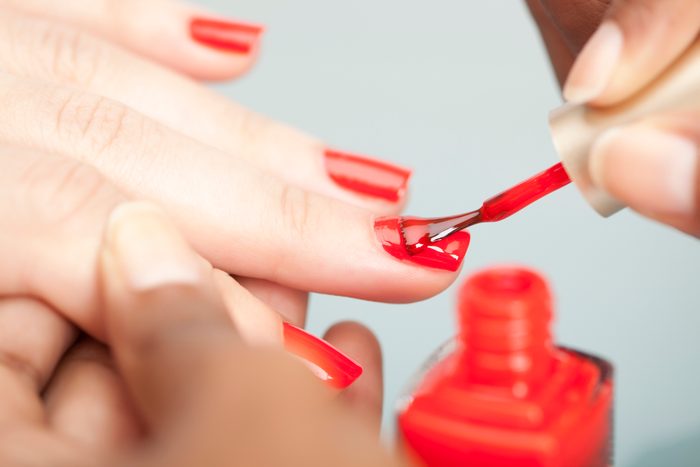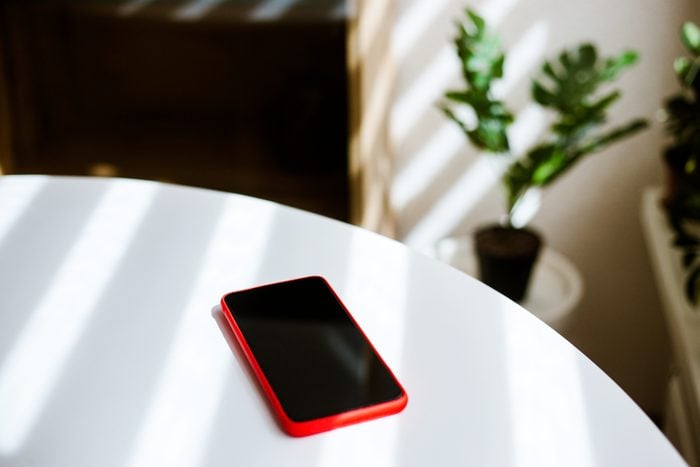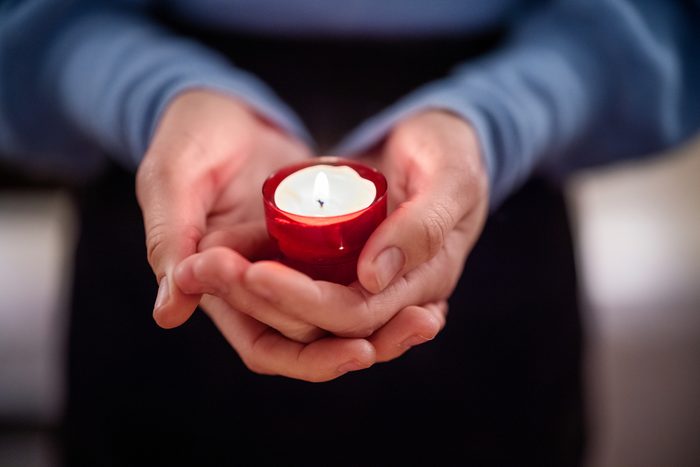
How to navigate Mother’s Day without her
Whether it’s your first Mother’s Day without your mom or you’ve gone through it many times, Mother’s Day can be intensely painful. While certain mom quotes, mother-daughter quotes or Mother’s Day poems can feel comforting, sometimes they can feel like a gut punch too.
In fact, any Mother’s Day ideas can hurt. “The first Mother’s Day without my mom was one of the hardest days of my life,” says Jeanette Kudin, a 40-year-old mother of four in Florida whose mother passed away from brain cancer several years ago. “I was torn between the grief of not having my mom with me and the love and happiness I felt remembering her.”
“That mix of feelings is perfectly natural, even if it’s hard to navigate,” says social worker Abigail Nathanson, a professor of grief and trauma at New York University. Your loved ones may send sweet condolence messages this time of year, but they probably won’t begin to cover how you feel. She also points out that many people don’t have a mother in their lives for reasons other than death. Mental illness, dementia, a closed adoption, addiction or a disappearance can also create profound loss and grief for children on Mother’s Day.
To help you navigate this emotional minefield, we asked both experts and women who’ve been there for tips to help you find the right way to cope with your loss and honor the day.
Get Reader’s Digest’s Read Up newsletter for more on relationships, travel, tech, home-keeping and fun facts all week long.

Be honest about your feelings
The best thing you can do for yourself is to be truthful about what you’re feeling and know that there is no one “right” way to do Mother’s Day. “There are so many situations that don’t fit into the ‘my mother is amazing’ or the ‘I am so sad she’s no longer here’ scenarios, and that can make Mother’s Day very difficult for many women,” says Karen Anderson, author of The Peaceful Daughter’s Guide to Separating from a Difficult Mother. “Know that it’s OK to feel conflicted, sad, angry or any other emotion on Mother’s Day. Your feelings are legitimate and understandable.”
Sharing your honest feelings with a trusted loved one or writing them in a journal can help you process them in a way that doesn’t feel so overwhelming, Anderson adds. Starting a gratitude journal may help you see what lessons your mother taught you that are still a valuable part of your life.

Make a yearly tradition of something that reminds you of her
Try to honor her by finding something you can do each year that feels fitting to her and your relationship. “Having a set ritual that you do every year can be a powerful and healing experience, helping you feel connected to her on that day,” says Nathanson. That connection will feel meaningful whether it’s your first Mother’s Day without your mom or any of the annual holidays afterward.
For Kudin, this is getting a pedicure and a facial, two of her mom’s favorite activities. “That first year, I went to the salon for a manicure, and I chose red—her favorite,” she recalls. “I sat in the chair bawling my eyes out. All I could think was, Why didn’t I do this more with her when I had the chance? I was flooded with regret and cried and cried,” she says. “But ultimately it was cathartic, and it did feel good. Now it’s a tradition, and I take my daughters with me. I still get red!”
Depending on your mother’s personality, you could rewatch mom’s favorite movie, spend time hiking her favorite trail or bake her favorite dessert.

Share memories of your mom with others
Telling stories about your mother to family and friends can help you feel closer to her. In fact, sharing nostalgic, happy memories of loved ones can strengthen that missing intergenerational bond, says Nathanson.
Robin E., a 43-year-old mother in Landenberg, Pennsylvania, does this with her own children. “Unfortunately, I lost my parents when they were relatively young, so my kids don’t have any memories of them,” she says. Her solution? “Every year for Mother’s Day and Father’s Day, I pull out the family photo albums, sit my kids down and retell the stories behind all the pictures. As they get older, they ask more questions, which usually leads to more stories. That makes for a fun afternoon filled with happy memories.”

Have a mourning ritual
After you’ve lost your mother, Mother’s Day can bring an intense range of feelings—grief, joy, regret, love, anger, admiration and everything in between. Creating a ritual to honor those feelings of mourning creates a sense of normalcy in your experience and gives you a way to process them, says certified oncology nurse Gail Trauco, a licensed grief mediator and author of Conquering Grief from Your Own Front Porch.
“I tell people to choose something physical that commemorates their mother’s life and the loss, like planting a flower bush, sewing a craft, writing a poem, releasing a balloon or lighting a special candle,” Trauco says. “The physical act can help you release pent-up feelings rather than ruminating on them.”
This is a good thing to establish on your first Mother’s Day without your mom, or it can be started on any Mother’s Day. It can also help bring a feeling of closure—something you very well may still need, often depending on the way you lost your mother, she adds.

Volunteer or donate in your mom’s name
Making time to support a cause that focuses on mothers or donating money to a cause that was important to your own mom is a powerful way to celebrate and honor Mother’s Day, says Nathanson. Doing so also helps others, so it can make you feel connected to her and allow you to carry on her legacy.
Leo M., 29, of Las Cruces, New Mexico, has her own annual volunteer ritual. “My mom was the biggest animal lover you’d ever meet,” she says. “She had the biggest heart and couldn’t say no to any stray. Our house was a zoo growing up—and I loved it. So every year on Mother’s Day weekend, my daughter and I head to the animal shelter and bring bags of food and towels and play with all the dogs and cats.”
Besides honoring your mom, the benefits of volunteering make being in service of others a mentally healthy way to spend the day.

Stay off social media
Facebook and Instagram can be a daylong parade of misery if you keep scrolling through other people’s pictures, videos and memories of their celebrations with their own moms. (Your first Mother’s Day without your mom is particularly excruciating.) Make a plan to avoid those apps on Mother’s Day and perhaps the few days surrounding it, says Anderson. Here’s how to do a digital detox if you’ve never tried it before.
For Deb R., 65, of Hercules, California, other people’s happy-mother posts hit particularly hard. “My mother was a narcissist and verbally abusive,” she says. “Because of the traumatic experiences I had growing up, it’s very hard for me to celebrate Mother’s Day in a traditional way.”
But rather than feel bad about it, she’s found ways to take care of herself during the holiday. “The first thing I do is sign off all social media on Friday night and stay off until Monday morning,” she says. “It’s too painful to see all the happy messages. Instead I watch my favorite sports shows and PBS.”

Reach out to others who knew your mom
Chances are, you aren’t the only one who’s missing your mama on Mother’s Day. Reaching out to your other parent, siblings, friends and other relatives is a powerful way to find support, says Trauco.
Joy M., 55, of Firth, Idaho, finds joy in chatting with others who loved her mom. “She was beloved by many people, and so on Mother’s Day I like to talk to them and hear their memories of her,” she says. “And I always make sure that my dad has people around him that day. She was the mother of his children, and I know he misses her at least as much as I do.”
If there aren’t many people left who knew and loved her, you may also find strength and community in these beautiful Mother’s Day quotes.

Let go of guilt
Mother’s Day has a way of highlighting all the cracks in the parental relationship, and that can lead to a day filled with guilt, shame and self-recrimination. This may be particularly true on the first Mother’s Day without your mom.
“One of the most insidious things adult daughters do is beat themselves up for not having a ‘great’ relationship with their mother, especially if their mother is no longer with them,” says Anderson. “But there’s no such thing as a perfect mother-daughter relationship, no matter what Hallmark or Facebook tells you. Don’t shame or guilt yourself on Mother’s Day, and take ‘fault’ and ‘blame’ off the table. There’s nothing specific you should or shouldn’t be doing on this day.”
We know this can be easier said than done, however. If you need a break from your negative feelings, here are the best gratitude journals that you can use to remind you of all the areas of your life that are deeply satisfying.

Skip the big brunch
Many people without mothers in their lives absolutely dread commercial Mother’s Day celebrations like brunches and spa days. Activities like these—and the onslaught of marketing and advertising for them—only highlight their feelings of loss and otherness. Give yourself permission to tune out all that and do something that feels more personal and intimate, says Trauco.
Jess S., 47, of Chaska, Minnesota, has found her own path for this. “Not having my own mother on Mother’s Day is painful and makes me aware of how short and precious time is,” she says. “So I want to make the most of the Mother’s Days I have with my own kids. I learned I hate standing in line for those ‘special’ Mother’s Day brunches or other advertised activities and would much rather do something personal. I usually start the weekend working in the garden, followed by a nice dinner with my kids.”
When you’re feeling up to a meal out, go to a nice restaurant that will knock your socks off. You deserve it!

Get away for the weekend
Mother’s Day can feel particularly fraught when you’re surrounded by reminders of your loss. This is especially true for people whose loss is more recent or was very traumatic, says Trauco. “Seeing things like photos of your mother or her clothing or dishes can trigger waves of grief, which can feel overwhelming,” she says. “It can be very helpful to take a trip and go somewhere new that doesn’t have any reminders of your mom.”
It also may be easier for you to process your feelings in a place where you aren’t surrounded by constant reminders. Need inspo on where to go? Here are the best places to travel in 2023.

Visit her grave or favorite spot
For some people, visiting their mother’s grave or one of her favorite places is a way to still be with her on Mother’s Day. “I take a potted outdoor flower to her grave on Mother’s Day, and then pick it up in a few days and display it outdoors at my home,” says Joy. “This way, I get to see it every day as I go in and out, and it makes me smile every time.”
Similarly, every Mother’s Day, 20-year-old Malie F. takes a picnic to the meadow where she scattered her mother’s ashes, as a way to be “with” her.

Write her a letter
If you’d always write your mom a Mother’s Day card or letter, that’s a tradition you can still carry on even though she’s gone. “Tell her about what you’ve been up to, share your feelings, write about your fears and accomplishments—words are a powerful way to feel connected to someone,” Trauco says. Keep the notes in a box to look back on later, share them with loved ones or release them somehow (say, burning them or leaving them at her grave).
“My mom kept all the Mother’s Day cards I ever made her, so each year I make her a new one,” says Malie. “I always tell her I love her and draw her little pictures.”

Be careful about temporary fixes
If you’re experiencing a lot of pain associated with Mother’s Day, it can be tempting to “get through” the day with unhealthy behaviors. That could be abusing alcohol or drugs, eating your feelings, gambling, spending hours scrolling online or shopping compulsively.
These things might feel good in the moment, but ultimately they’ll make you feel worse the next day and will only reinforce the difficulty of Mother’s Day, says Trauco.

Do something religious or spiritual
Celebrating Mother’s Day without your mom can feel very lonely. But the truth is that nearly everyone will have that experience eventually. Learning how to move forward without your parents is a universal human experience.
Many people find perspective regarding this life transition through having a religious or spiritual practice, says Trauco. Find something that feels right to your soul—whether that’s attending a church service, talking to a clergy person, reading a spiritual text or something else.
Don’t consider yourself a religious or spiritual person? Meditating may be a way to help you find a more peaceful and connected path forward.
Sources:
- Abigail Nathanson, DSW, licensed social worker, board-certified in palliative care and professor of grief and trauma at New York University
- Karen Anderson, author of The Peaceful Daughter’s Guide to Separating from a Difficult Mother
- Gail Trauco, RN, BSN-OCN, certified oncology nurse, licensed grief mediator and author of Conquering Grief from Your Own Front Porch
